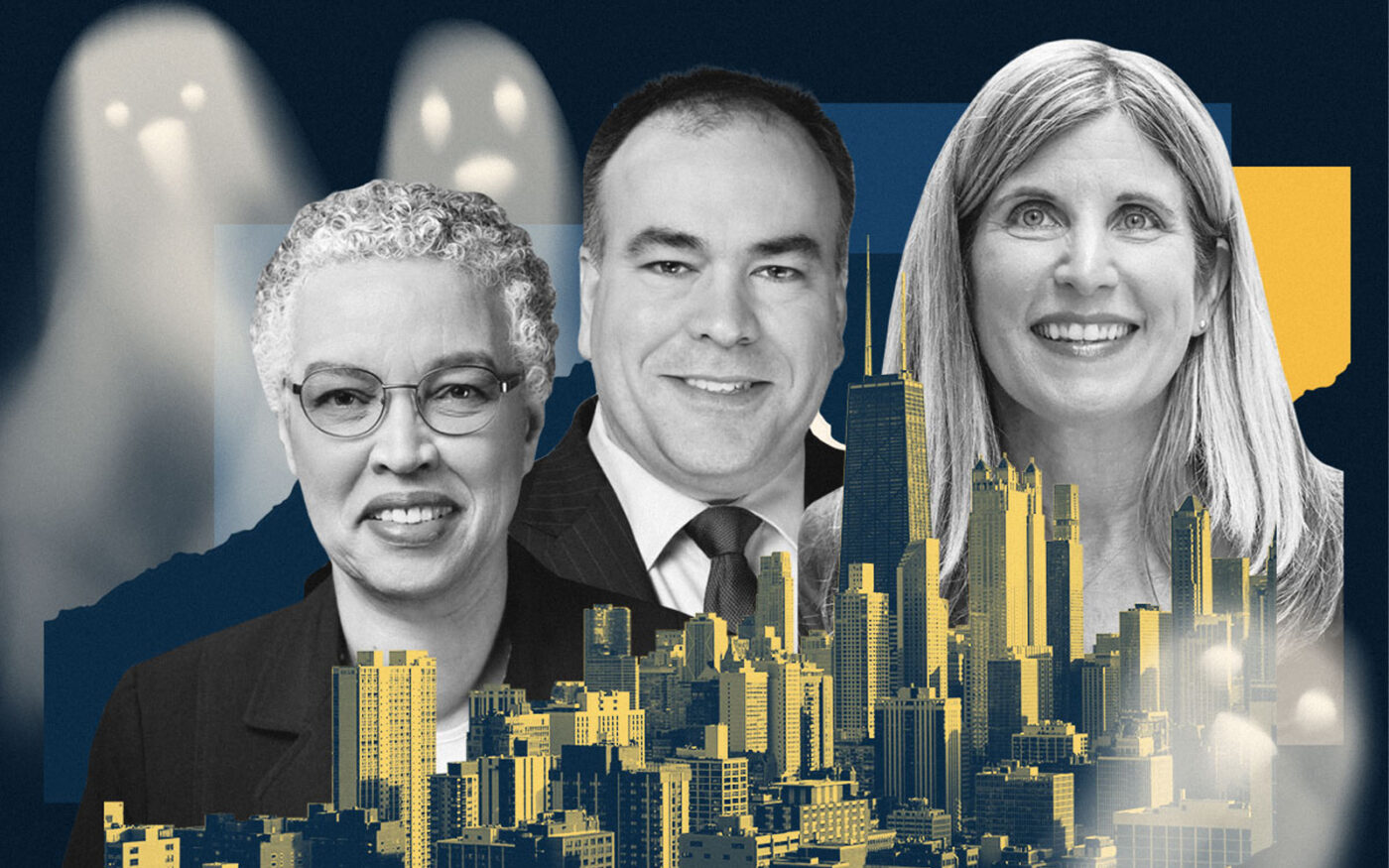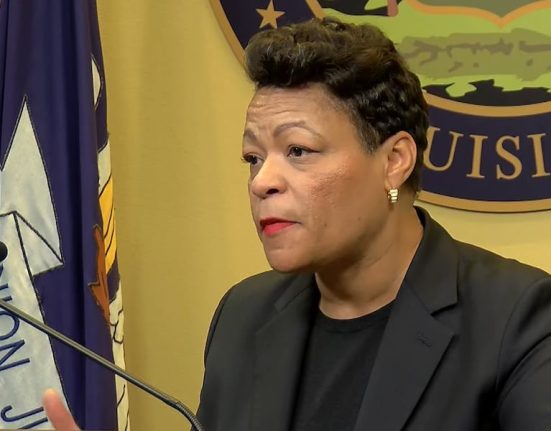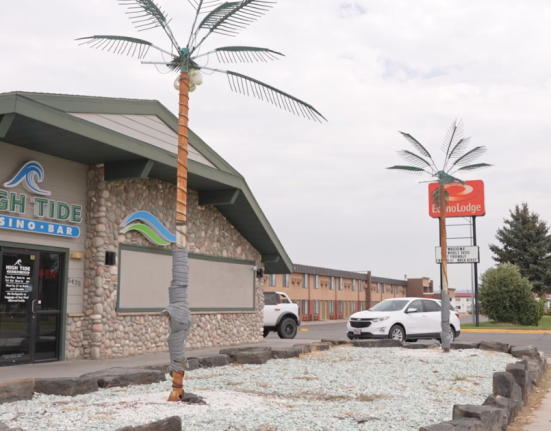When Irish investor and TV personality Sean Conlon’s River North loft office building was hit with a foreclosure lawsuit last year, it accelerated his exit from Chicago.
Conlon began his commercial real estate career in the city and eventually expanded elsewhere, including North Carolina, Dallas and West Palm Beach. True, he had been selling off his Chicago assets for years, but he hoped to hang onto the River North office, one of his last holdings in the city.
Then his property tax bill pushed the already struggling office into the red.
“It’s an unbelievable international city,” he said, but “the property taxes are out of control.”
Chicago has emerged from the pandemic with some of its fundamentals intact: It’s got college-educated residents, good public transportation, a diverse job market, strong rent growth and logistical advantages for the industrial sector. None of that seems to make up for the ghost that keeps haunting the place: Cook County property tax policy, which is still scaring away investors and stifling economic recovery.
The problem is that commercial properties are not only taxed at a higher percentage of their value than residential properties — a longtime issue — but that the county’s recent tax reform attempts have also added unpredictability to the mix. Plus, even as market values correct to reflect the impact of Covid, assessments haven’t adjusted at the same rate.
Chicago’s effective tax rate for commercial properties worth $1 million in 2023 was the highest in the nation and more than double the average effective tax rate of 53 other major U.S. cities, a study from the Lincoln Institute of Land Policy found.
Flawed system, flawed recovery
By the time Conlon’s foreclosure filing hit in 2024, the property taxes on his building had increased by 166 percent, nearly tripling since he bought it in 2015.
“For the last three or four years I was paying $55,000 a month extra to carry it,” he said. “My property taxes on that building are about half a million dollars a year and the asset is probably worth $3 million.”
Cook County records show Conlon’s tax bill peaked at $521,000 in 2021 and came in at $451,000 in 2023. Last year, the value was $8.8 million, but a successful appeal to the assessor lowered it to $6.5 million.
Conlon thinks the value should be even lower, considering the building’s occupancy had fallen to less than 60 percent.
When commercial real estate values fall drastically, owners pay less in taxes, and municipal coffers grow dry, which can set off the dreaded doom loop where cities can’t invest in services, population drops and property values fall even further.
Like many other real estate professionals in the city, Conlon believes Cook County Tax Assessor Fritz Kaegi has been overvaluing commercial properties to stave off such an outcome.
“Both on the development side and the acquisition side, we are immediately told by investors from out of state, ‘anything but Cook County,’” Brian Goldberg, CEO of Chicago-based development firm LG Group, said. “Literally any other county outside Cook is fine by them because they have a reasonable expectation of what the taxes will be.”
In the 2021 assessment cycle, Kaegi overvalued commercial properties in Chicago by nearly 20 percent prior to appeals, a recently released study commissioned by Cook County Board President Toni Preckwinkle found. In the suburbs, commercial properties tended to be undervalued. The assessor said his office is not targeting commercial property owners in Chicago.
“Our assessment models are not designed to favor one type of property over another,” Kaegi said in a written statement to The Real Deal, adding that commercial and residential values are calculated separately.
But local real estate players say more investor confidence is going to be needed to help the city recover and reach its full potential. Office vacancy has been stuck around 25 percent since the pandemic, the incoming multifamily pipeline is virtually nonexistent and several megadevelopments are currently on pause due to lack of financing.
And the city and county will have to get out of their own way before they can expect institutional capital to flow in.
Reform?
Goldberg’s contention aside, issues do extend beyond Cook County.
The state’s mass appraisal system groups properties together to determine their values, which can cause assessors to miss unique property attributes that might push a value higher or lower.
Illinois also requires local government bodies such as city councils and school districts to set their budgets before property values are assessed. That means rather than the assessor giving budget makers a target of available property tax revenue to aim for, local agencies give property owners a total dollar amount they’ll need to generate via taxation, and the assessor determines how to distribute the bill.
Commercial property owners take an extra hit in Chicago because unlike the rest of the state, Cook County taxes commercial properties at a higher rate than residential properties. Residential properties are taxed based on 10 percent of their value while commercial properties are taxed at 25 percent of their value.
The dynamic has fostered a lucrative property tax appeal business and led to dramatic reductions in values between a property’s initial assessment and its final assessment after appeals.
“We’re not as scared. … It’s not the worst case scenario.”
Kaegi took office as a change agent after an eight-year stint by his predecessor — longtime Democratic machine boss Joseph Berrios — ended with several of his former employees facing federal bribery charges. And in the last two years, criminal convictions of two of the biggest players in the property tax appeal business, powerful former fellow Democratic lawmakers Michael Madigan and Ed Burke, added to the perception that the system is being cleaned up.
But Kaegi’s reforms to what was already a flawed system haven’t transformed Chicago into a safe bet for investors because change is hard.
“They could have been corrupt, they could have been wrong, they could have been low, sure, all that, but at least they were consistent and predictable,” Goldberg said of prior regimes.
Shifting the county’s tax burden from residential tax payers to commercial tax payers has been a badge of honor for Kaegi. His shakeups in the last year include closing an “apartment loophole” that allowed some owners of small to midsize mixed-use properties to claim the county’s lower residential tax rate despite their commercial use and releasing a report that slammed commercial appraisers for undervaluing commercial properties to influence property tax appeals.
When his final assessments of the urban core came out, a summary report stated that “because commercial property increased in value by more than residential property, homeowners saw their share of the tax base drop from 51 percent to 49 percent.”
Kaegi also said at the time that he took the strong performance of non-office properties and class A offices into account. He placed higher value on Class A offices than Class B and C offices that have been losing tenants to high-end buildings and struggling to replace them.
“A strong market for multifamily apartments and industrial properties helped boost commercial property values in 2024 and offset more modest growth in the office sector,” Kaegi said. “The residential housing market also grew, but at a slower rate.”
But commercial property owners said the changes have lacked transparency.
“We have an assessor who is arbitrarily shifting property tax burden onto commercial properties,” said Amy Masters, director of government affairs for BOMA, the office building trade group.
Reexaminations of old tax bills have also revealed discrepancies that add to the lack of trust.
One audit found that at least 620 properties were misclassified or undervalued during the 2023 tax year, resulting in an estimated $444 million in missed taxable value.
Hope on the horizon
If the too-high appraisals keep some investors away from commercial properties, the chaos may also be paradoxically making Chicago a good investment for others.
Being underestimated has its advantages, Greg Kirsch, founder of retail brokerage Kirsch Agency, said.
“I appreciate that we are consistently the underdog in the country,” he said. “I like the idea that there are opportunities for me to broker deals. But I think that 10 years from now, people are going to look back and say, ‘You know what? This was a really undervalued place.’”
Several proposed reforms released by Preckwinkle’s office offer validation and a glimmer of hope.
And Kaegi said the office has embraced the recommendations and is already implementing some of them.
One idea is to maximize communication and data sharing between the tax assessor and the Board of Review so that initial assessments and appealed assessments don’t vary so widely.
That’s a reform Goldberg would welcome.
“They might raise your taxes 30 percent year-over-year or 100 percent year-over-year, and we don’t know what they’re basing that information on. They don’t have established metrics and transparency with which to justify it,” he said, adding that this creates a high-stakes appeals process.
Kaegi said the assessor’s office has increased transparency by publishing methodology information online and establishing the first ever Director of Commercial Outreach to communicate with real estate professionals.
Meanwhile, Masters said BOMA is pushing for more flexibility in commercial property tax rates.
“We know it’s politically not feasible to flatten the assessment rate so that it’s even for all properties at this time, but we’d like to find ways to make that more flexible, especially during times in the market that are more challenging, like now,” Masters said.
For multifamily broker Andy Friedman, Kaegi’s reforms were a tough pill to swallow during his first downtown assessment in 2021. But now, as Kaegi’s second round of triennial assessments gets rolled out, they’re easier to navigate.
“We’re not as scared. Yes, he’s re-jiggering assessed values, but the effect, while not good on commercial, is not the worst case scenario,” he said.
Until further, commercial-minded reforms take shape, institutions will stay on the sidelines.
“It still puts institutions into the position of having to underwrite, if not worst case scenario, a close to worst case scenario,” Friedman added.







